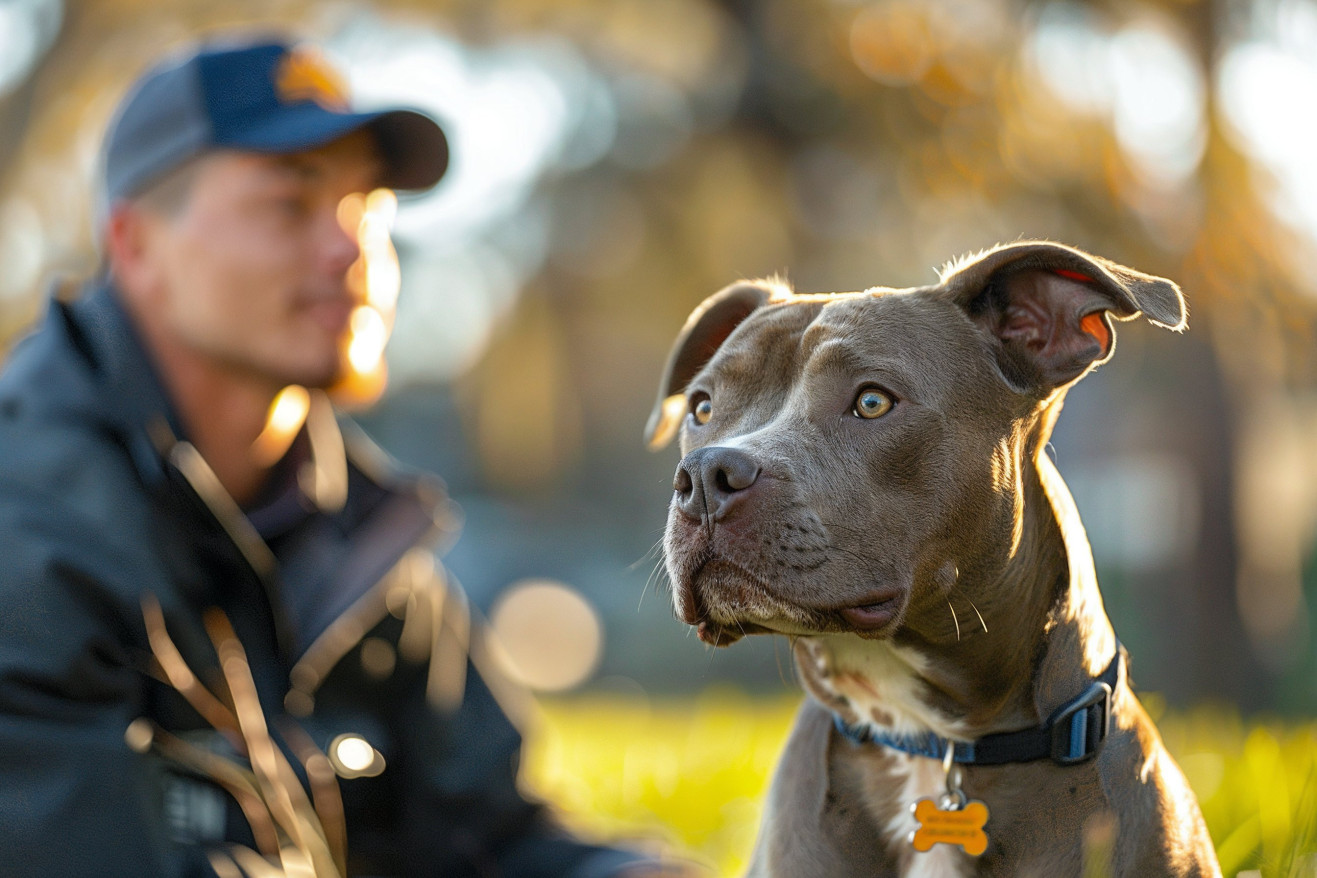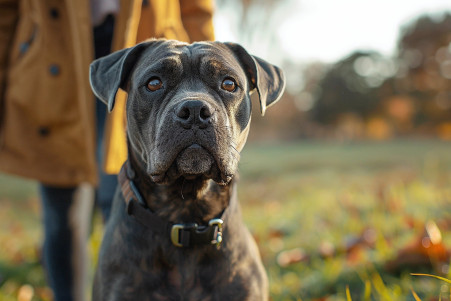How Smart Are Pitbulls? New Studies Answer This Question
17 April 2024 • Updated 16 April 2024

Pitbulls are one of the most maligned dog breeds, but how do they compare to other breeds in terms of intelligence? Pitbulls are actually quite intelligent dogs. They are very people-oriented and do well in obedience and agility training when rewarded with positive reinforcement. In fact, studies have found that pitbulls are just as intelligent as other popular breeds like retrievers and German shepherds.
To get a sense of the full range of a pitbull's intelligence, we'll take a look at scientific research on pitbull behavior, brain structure, and quantifiable cognitive skills. This work in animal psychology, neuroscience, and genetics will help us understand how pitbulls use their intelligence to solve problems, learn, and exhibit cognitive abilities that even the most ardent pitbull fans may not have realized. After reviewing the evidence, you'll come away with a better understanding of the cognitive abilities of these strong, but often stigmatized, dogs.
Are Pitbulls smart?
How Smart Are Pitbulls? Insights from the Coren Dog Intelligence Trials
The Coren dog intelligence trials are one way to measure dog intelligence in a standardized way across breeds. According to the trials, the Staffordshire Bull Terrier is of 'average' intelligence, needing between 25 and 50 repetitions to learn a new command and obeying a known command on the first try with a 50% success rate. On the other hand, the American Staffordshire Terrier is considered to be of 'above average' intelligence, needing 15-25 repetitions to learn a new command and obeying a known command on the first try with a 70% success rate according to research referenced by TryFi.
While these trials can give us some idea of the intelligence of pitbull-type dogs, they are not the final word. There is a lot of variation in intelligence between individual dogs, and intelligence is also affected by training, socialization, and other environmental factors. As Pitbulls.org explains, pitbulls are eager to please and can be trained with positive reinforcement, which allows them to learn quickly. Their large cerebrum also makes them good learners.
So, while the Coren trials and others like them can give us some idea of the intelligence of pitbulls, how smart a pitbull is in practice will depend on the individual dog and their environment. With the right training and socialization that meets their specific needs, pitbulls can show that they have the potential to be of above-average intelligence when it comes to learning and problem-solving, which makes them adaptable working dogs and pets. This is another reason why responsible ownership is so important, which we'll discuss in more detail.
Pitbull Temperament and Aggression
Pitbulls were originally bred for bull-baiting and dog fighting, and this history has led to their reputation for aggression. According to Forbes Advisor, the American pit bull terrier's violent past has "tarnished the breed's reputation" and resulted in breed-specific legislation that has banned the breed in many places.
However, with responsible breeding and socialization, pitbulls can have loving and affectionate temperaments. The Spruce Pets explains that "a well-socialized and trained pit bull is far from" aggressive and that the breed was "developed specifically to be friendly and gentle toward humans."
While pitbulls are not inherently more aggressive towards humans, the ASPCA explains that dog aggression is more common in the breed. Pitbulls are also involved in a higher number of fatal dog attacks, largely because of their strength and determination, as Fuicelli & Lee's research has found.
Training, socialization, and responsible ownership are all important for preventing aggression in pitbulls. As DogsBite.org points out, these are all factors that influence a pitbull's temperament and the likelihood that they will be involved in an attack. With the right support and care, pitbulls can overcome their past and become wonderful pets.
Pitbulls Are Notoriously Aggressive Dogs
The term 'pitbull' is not an official breed, but rather an umbrella term that refers to a group of breeds that share similar physical characteristics, including the American Pit Bull Terrier, the American Staffordshire Terrier, the Staffordshire Bull Terrier, and the American Bully source. Pitbulls don't have 'locking jaws' or a special kind of bite. According to the American Pit Bull Foundation, "There is no such thing as a 'locking jaw'—no dogs (of any breed or type) have physical characteristics in their jaw that would cause or allow them to 'lock' their jaws."
Pitbull breeds are not inherently aggressive. In fact, the Canine Humane Network points out that pitbulls are "not inherently aggressive" and the American Temperament Test Society has found that pitbull-type dogs score above average compared to the general dog population. Instead, a dog's tendency to bite is more closely associated with other factors, such as whether or not the dog has been spayed or neutered, if the dog has been abused, and if the dog has been tethered, than it is with the dog's breed, as a study in the Journal of the American Veterinary Medical Association has demonstrated.
Pitbulls can be great family pets and companions when they're properly socialized and trained. The ASPCA explains that pitbulls "have long been popular family pets, noted for their gentleness, affection and loyalty." By debunking myths and ensuring that they're cared for responsibly, people can come to understand and appreciate these dogs for who they really are.
Training, Socialization, and Exercise: The Basics of Being a Good Pitbull Owner
Socialization is especially important for pitbull puppies, particularly during the critical period of 3 to 14 weeks. According to Dogster, socialization is the process of "systematically and positively" introducing puppies to the human world, which helps them become comfortable around people and other animals. Meanwhile, positive reinforcement training is a great way to teach pitbulls obedience and impulse control, and many experts recommend using the "Leave it" and "Take it" commands to help enforce positive behaviors.
Pitbulls need both mental and physical exercise. PetSide suggests that owners make sure to take their dogs on daily walks and play with them, and they also recommend activities like puzzle toys to keep them mentally engaged. Meanwhile, it's important for pitbull owners to make sure they have a consistent schedule, enforce rules, and be a strong leader, as pitbulls need structure and respond well to confident leadership.
Of course, it's also important to make sure that your pitbull is eating well, getting groomed, and seeing the vet regularly. WikiHow suggests that pitbulls eat a diet that's high in protein, get brushed regularly, and see the vet for annual checkups to ensure that they're in good physical and mental health. With the right care and training, these smart dogs can be great, loving pets.
Conclusion: Recognizing Pitbulls as Smart, Loving Pets
Studies have shown that pitbulls are intelligent dogs that can learn and excel at a variety of tasks. With the right training, socialization, and responsible ownership, pitbulls can be great family pets. Overcoming the stigma and myths surrounding pitbull aggression is important to understanding the breed.
Pitbull owners must ensure their dogs receive proper care, training, and exercise. By learning about pitbull intelligence and dispelling myths, we can come to understand and appreciate these dogs for who they really are.


